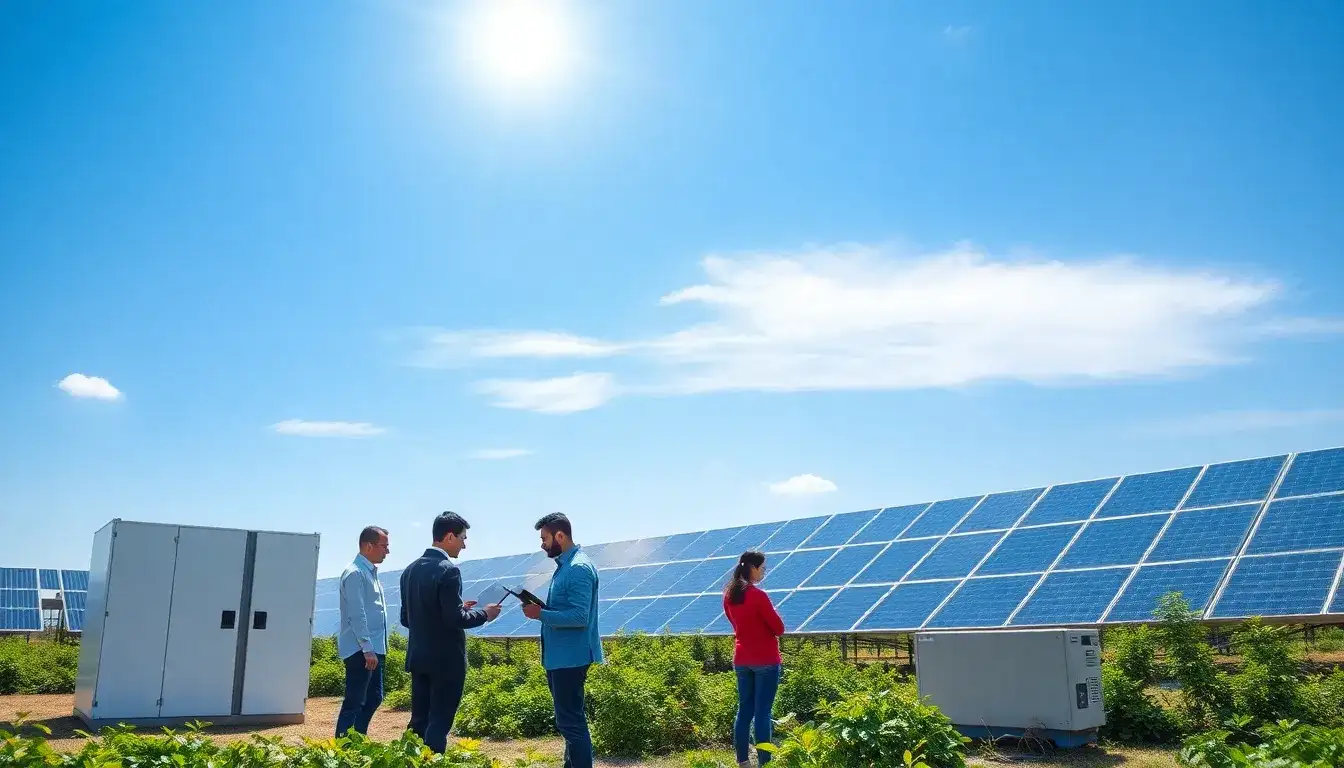Energy Storage Systems Advisory for Solar Projects in India
By Rediff Money Desk, New Delhi
February 19, 2025
India’s Central Electricity Authority (CEA) has issued an advisory focused on the co-location of energy storage systems (ESS) with solar power projects. This initiative aims to improve grid stability and cost efficiency. The advisory has been disseminated to principal secretaries and secretaries of power and energy in all states and Union Territories, as well as to the Chief Ministers of central power generating stations and heads of Renewable Energy Implementing Agencies (REIAs). Additionally, copies have been sent to the Secretary of the Ministry of Power, the Secretary of New and Renewable Energy, and the Central Electricity Regulatory Commission (CERC).
India has set an ambitious target to achieve 500 GW of power from non-fossil fuel sources by 2030. To meet this objective, there is a need to considerably enhance the capacity of variable renewable energy (VRE) sources, such as solar and wind. However, this presents challenges to grid stability since VRE sources are inherently intermittent and may not be available during peak demand periods.
In this context, the CEA emphasizes that energy storage systems are crucial for maintaining grid stability, reliability, and optimal energy use. ESS can effectively address the intermittency issues associated with renewable energy projects by storing excess energy for use during low renewable energy hours, thereby ensuring a more reliable and stable grid.
As of December 2024, the installed capacity of ESS in India stands at 4.86 GW, comprising 4.75 GW from pumped storage projects (PSP) and 0.11 GW from battery energy storage systems (BESS). According to the National Electricity Plan published by the CEA, integrating 364 GW of solar and 121 GW of wind capacity by 2031-32 will require approximately 73.93 GW/411.4 GWh of storage capacity, broken down into 26.69 GW/175.18 GWh from PSP and 47.24 GW/236.22 GWh from BESS.
To achieve this target, all Renewable Energy Implementing Agencies and state utilities are advised to include a minimum of 2-hour co-located Energy Storage Systems, equivalent to 10 percent of the installed solar project capacity, in future solar tenders. This requirement will help mitigate intermittency issues and provide essential support during peak demand periods. The advisory also suggests that a suitable compliance mechanism be explicitly stated in the bid document to ensure the availability of storage during non-solar hours.
Additionally, distribution licensees are encouraged to consider mandating 2-hour storage systems for rooftop solar installations. This approach will enhance the reliability of supply at the consumer level and alleviate the burden of over-injection during solar hours for distribution licensees.
Integrating storage systems with solar power projects not only supports grid stability but also offers long-term economic advantages. These benefits include improved utilization of transmission lines designed for evacuating solar power during evening hours, reduced transmission requirements and costs, enhanced energy security, and increased overall efficiency of renewable energy systems.
Original article by NenPower, If reposted, please credit the source: https://nenpower.com/blog/indias-central-electricity-authority-advocates-energy-storage-systems-for-enhanced-solar-project-efficiency/



